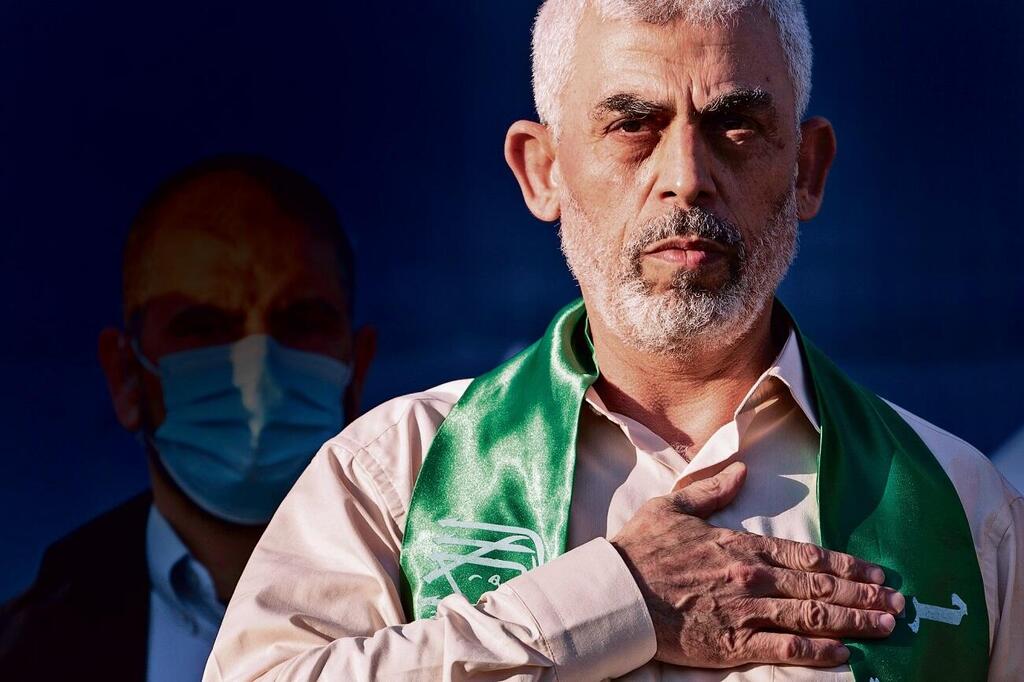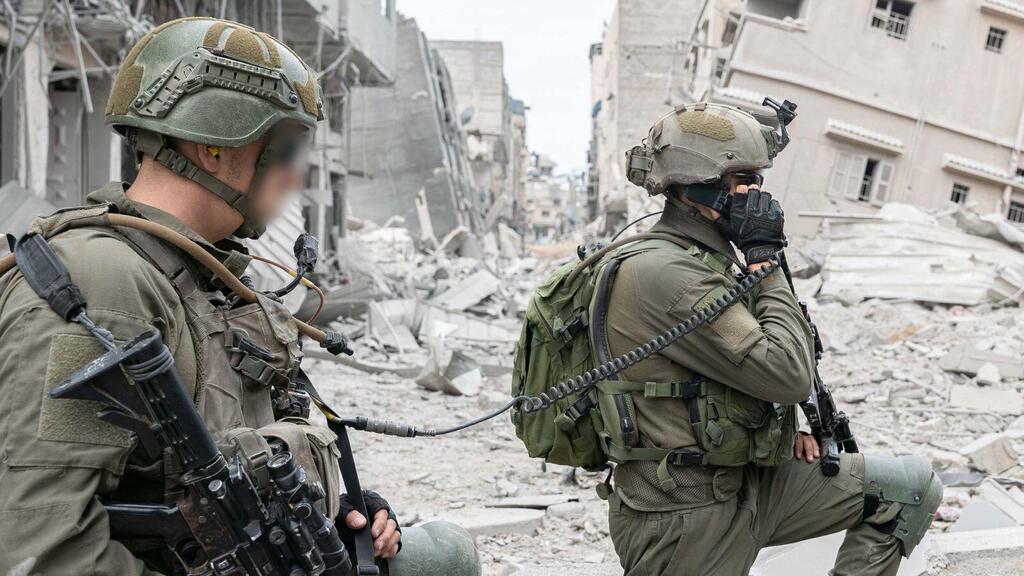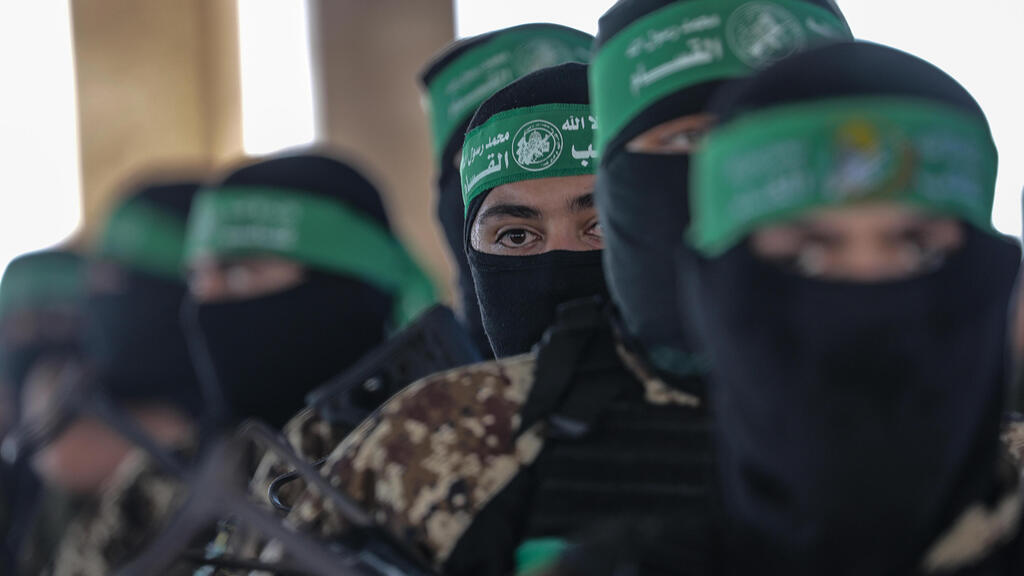Getting your Trinity Audio player ready...
The coming days are likely to be the most significant ones in the war against Hamas so far. As it now seems, Hamas has decided to stick to its guns, taking a hardline stance in negotiations and essentially refusing to agree to a cease-fire and release hostages before Ramadan, hoping to ignite the entire Middle East.
More stories:
The terrorist organization and its leader in Gaza, Yahya Sinwar, who achieved more than they hoped for on October 7 but suffered a resounding failure in enlisting the aid of other fronts in the war, hope that this time Ramadan — which begins in six days — will make the difference.
In other words, the fasting, sanctity of the holiday, and the Temple Mount will work the magic that Hamas failed to almost five months ago, and Hezbollah, Arab Israelis, and West Bank Palestinians will join the war against Israel.
All these will likely shift the balance of power in Hamas’ eyes, and force Israel to reach a complete cease-fire in Gaza. However, this gamble is immense. In fact, Sinwar, a religious man who saw an "offense" against the Al-Aqsa Mosque before the war as an excuse to wage it, knows that if the other Arab fronts won’t ignite even during Ramadan, the fate of Hamas and the Gaza Strip is sealed.
The IDF will launch an operation in Rafah and other areas where it has yet to operate, and Hamas's military and political framework will be severely damaged. Significant damage to Hamas's military and political capabilities will pave the way for another ruling entity to take charge - one that, whether Israel likes it or not, will be associated with Fatah and the Palestinian Authority, thus completing Hamas's defeat.
The other option facing Sinwar, namely reaching a cease-fire agreement and releasing the hostages in exchange for hundreds of Palestinian prisoners, probably means the terror organization’s survival. However, Sinwar knows that at this point survival won’t truly allow him to claim victory.
Palestinians who try to return to their homes throughout the Gaza Strip in such a cease-fire will struggle to recognize the city, neighborhood, and street where they lived, let alone their houses.
The immense destruction, and unimaginable human cost in Gaza, will cause Gazans to demand him to account for his actions and give answers he may not have. Even the release of several hundred Palestinian prisoners won’t calm the situation in the Strip. Therefore, it seems that Sinwar is seeking something much bigger, something that will allow him to claim that he, Salah ad-Din of our time, has no less than defeated the Jews.
Sinwar is driven by extreme religious ideology and believes that Ramadan will bring about the change he wants, and finally succeeds in partially awakening those on the sidelines, the “Inner Arabs,” meaning the Israeli Arab residents, to act, if not in the form of a mass uprising, then in the form of hundreds of severe terror attacks across the country.
This is the scenario that Sinwar envisions, and the fact there are some in Israel who’ll help him to achieve that — National Security Minister Itamar Ben-Gvir — is a serious threat.
If the Israeli government sticks to Ben-Gvir's plan to prevent Israeli Arabs from ascending the Temple Mount during Ramadan, it could realistically become that fuse that’ll ignite the inter-Israeli and West Bank powder keg.
Meanwhile, escalations in the West Bank continue to rise. Shooting and attempted terror attacks are taking place almost daily. While the Palestinian Authority does demonstrate control in some areas, in others, particularly Tulkarem and Jenin, its abilities are limited.
The Palestinian Authority and Fatah have returned to the center of the political stage, also in the context of the Gaza Strip and postwar scenarios. It’s now clear that if the State of Israel doesn’t wish to completely conquer the Strip and impose military rule in the region, then officials in Fatah and/or the Palestinian Authority will be the ones to manage the Strip after the war, alongside international bodies.
However, Israel must get through Ramadan safely before reaching these dilemmas. Hamas is already carrying out tremendous efforts abroad, alongside the Iranian Shi'ite axis, to smuggle new weapons it believes could be “tie-breakers” into the West Bank from the eastern border. Military equipment that will change the face of warfare in the near future and turn the West Bank into a much more complex battlefield for the IDF.
Many of these smuggling attempts have been foiled, but it can be assumed that some have succeeded. A violent eruption in the West Bank during Ramadan will undoubtedly pose a significant security challenge to Israel, especially while the war in Gaza and the fighting on the northern border are ongoing at the same time.







